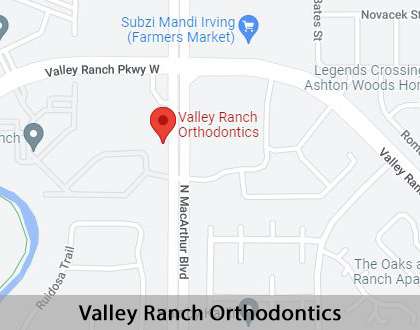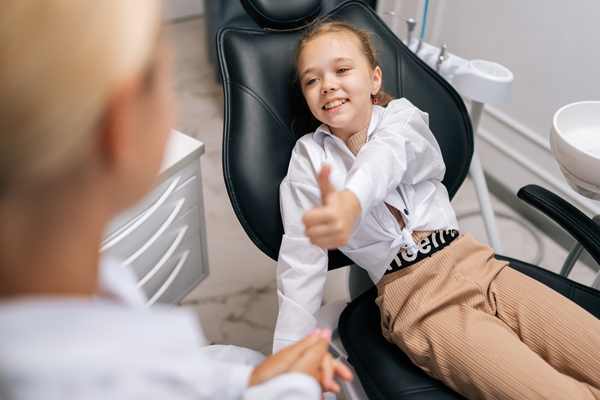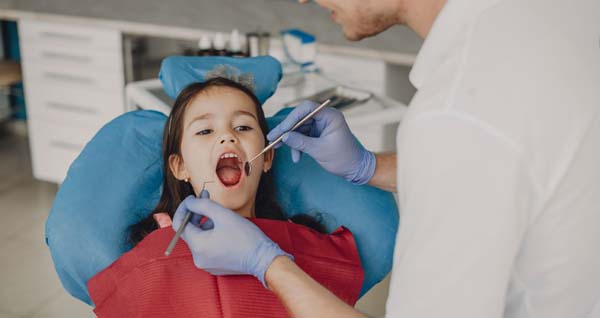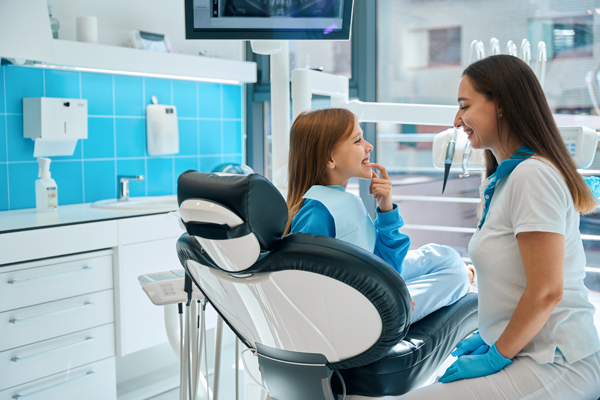Two Phase Orthodontic Treatment Irving, TX
Orthodontic care provides your child with a straight, even smile. Braces can boost your child's confidence and prevent dental troubles down the road. But choosing the right orthodontic treatment is not always easy. The first orthodontist visit can be nerve-wracking for both parents and children.
Orthodontics for kids is available at Valley Ranch Orthodontics in Irving and the surrounding area. Our team offers a wide range of services, including first braces. We help your family explore your options for orthodontic care. Call us at (972) 200-1016 to learn more.
Benefits of Orthodontic Treatment
Orthodontic care ensures that a child's permanent teeth shift into the proper position. Orthodontics also helps the jaw develop into the correct size and shape. Braces can align your child's jaw and improve their ability to chew. Over time, a proper bite reduces wear-and-tear on the teeth.
Straight teeth are also easier to keep clean. If your child has crooked teeth, food particles can become trapped. Tartar and plaque can build up, and tooth decay can flourish. Orthodontics straightens out the teeth and improves oral hygiene.
Orthodontics also supports your child's self-confidence. Crooked teeth can be embarrassing for children and teens. Bright, straight teeth promote a positive first impression. Orthodontics may also boost your child's success in the future.
“Orthodontics straightens out the teeth and improves oral hygiene.”
Phase One Overview
Phase One is sometimes known as “early interceptive treatment.” During this stage, children still have some of their baby teeth. Treatments like braces are not available yet. Instead, the dental team works to improve the child's jaw shape and size. They ensure that there is enough room for permanent teeth. The team also addresses problems with bite and jaw alignment.
Phase One treatment sometimes eliminates the need for further orthodontic care. It can also shorten Phase Two treatment time and improve outcomes. The goal of Phase One is to streamline treatment. The team tries to reduce the child's need for further orthodontics.
“Phase One treatment sometimes eliminates the need for further orthodontic care.”
Phase Two Overview
After Phase One is complete, the dental team examines your child's permanent teeth. They work to shift these teeth into the correct position. Often, Phase Two involves braces or clear aligners. Patients may also wear a retainer or rubber bands. The dental team can help parents explore their children's options and choose the right treatment.
During Phase Two, the team works to improve the position of the child's teeth. The team strives to maximize the health and function of the child's mouth. They fix bite problems and adjust jaw misalignment. The team also considers aesthetics as they rotate crooked teeth and repair spacing issues.
“Often, Phase Two involves braces or clear aligners.”
Check out what others are saying about our orthodontic services on Yelp: Two Phase Orthodontic Treatment in Irving, TX
The ‘In-Between’ Stage
After Phase One, the child will undergo a “rest” period. The team removes the orthodontic appliances, and treatment is paused. This rest period may last for 1-3 years. During this stage, the dental team monitors your child's mouth. They wait as the jaw develops and permanent teeth erupt.
During orthodontic treatment, patience is key. Parents are often anxious to complete the orthodontic treatment plan. But rushing into Phase Two can trigger significant dental problems. It takes several years for a child's mouth to fully develop. Sometimes, dental issues may resolve on their own. "Overcorrecting" an orthodontic issue can create new problems. The dental team can let parents and caregivers know when it is time to start Phase Two.
“After Phase One, the child will undergo a ‘rest’ period.”
Questions Answered on This Page
Q. What are some benefits of orthodontics?
Q. What is Phase One orthodontic treatment?
Q. What is Phase Two orthodontic treatment?
Q. When will my child start Phase Two?
Q. What orthodontic options are available for teens?
People Also Ask
Q. What type of braces are right for my teen?
Q. Are there dietary guidelines I should follow when wearing braces?
Orthodontics for Teens
Teens may experience a variety of orthodontic problems. Some develop crooked teeth, bite issues, and irregular spacing. They may feel self-conscious or embarrassed about their orthodontic issues. Fortunately, treatment can resolve many of these problems.
Your teen might be eligible for braces. Several types of braces are available, including:
- Metal braces
- Clear or ceramic braces
- Damon braces
Clear aligners are another popular option. These removable trays are discreet. Many patients find them more comfortable than metal braces. Teens can remove these appliances for sports, dances, and special events.
Treatment options will depend on the child's unique dental needs. The dental team can explain which Phase Two treatment is right for each child. They can also discuss treatment times and costs. Treatment plans can vary depending on dental needs and insurance coverage.
“Treatment options will depend on your child’s unique dental needs.”
Frequently Asked Questions
Q. What is the difference between Phase One and Phase Two?
A. During Phase One, the team works to improve jaw shape and alignment. In Phase One, patients still have some of their baby teeth. The provider strives to develop a proper foundation for permanent teeth.
During Phase Two, patients have their permanent teeth. Orthodontists focus on straightening crooked teeth, fixing bite problems, and adjusting spacing issues. Patients often receive braces or clear aligners during this stage.
Q. When does Phase One begin?
A. Phase One usually begins around ages six to 10. After Phase One is complete, children have a “rest” period. During this period, the dental team waits for permanent teeth to erupt and the jawbone to develop. The orthodontist can explain when your child's Phase One treatment begins and ends.
Q. When does Phase Two begin?
A. Phase Two usually begins around ages 11 to 13. Once children have their permanent teeth, they are eligible for treatments like first braces. Our dental team can let you know when it's time to consider Phase Two treatments.
Q. Will my child need braces?
A. When children are young, it can be difficult to predict how their mouths will develop. But early orthodontic assessments can help parents plan for future dental care. All children should receive an assessment by age 7. During this exam, the orthodontist may take measurements or impressions. The team explains what type of care your child may need in the future.
Q. How much does orthodontic care cost?
A. Treatment costs can vary. As a rule, the more complex treatment plans carry higher costs. Valley Ranch Orthodontics can provide a breakdown of estimated costs.
Quality Orthodontic Services Can Transform Smiles
By visiting us as soon as possible, our team can help get you the professional treatment you need.
Definition of Orthodontic Terminology
Call Us Today
Two-phase treatment plans can resolve even the most stubborn orthodontic concerns. Phase One focuses on adjusting your child's developing mouth. In Phase Two, the dental team guides permanent teeth into the correct position. The team also adjusts the child's bite and addresses jaw problems. After orthodontic treatment, your child enjoys a brighter and straighter smile.
If you are considering orthodontic care for your child, let Valley Ranch Orthodontics in Irving help. Call us at 972-200-1016 to learn more about our services and policies.
Helpful Related Links
- American Dental Association (ADA). Glossary of Dental Terms. 2021
About our business and website security
- Valley Ranch Orthodontics was established in 2008.
- We accept the following payment methods: Cash, Check, MasterCard, and Visa
- We serve patients from the following counties: Dallas County, Denton County, and Tarrant County
- We serve patients from the following cities: Irving, Lewisville, Addison, Dallas, Colleyville, Coppell, South Lake, Farmers Branch, Flower Mound, Carrollton, Grapevine, Las Colinas, and Highland Village
- Norton Safe Web. View Details
- Trend Micro Site Safety Center. View Details







